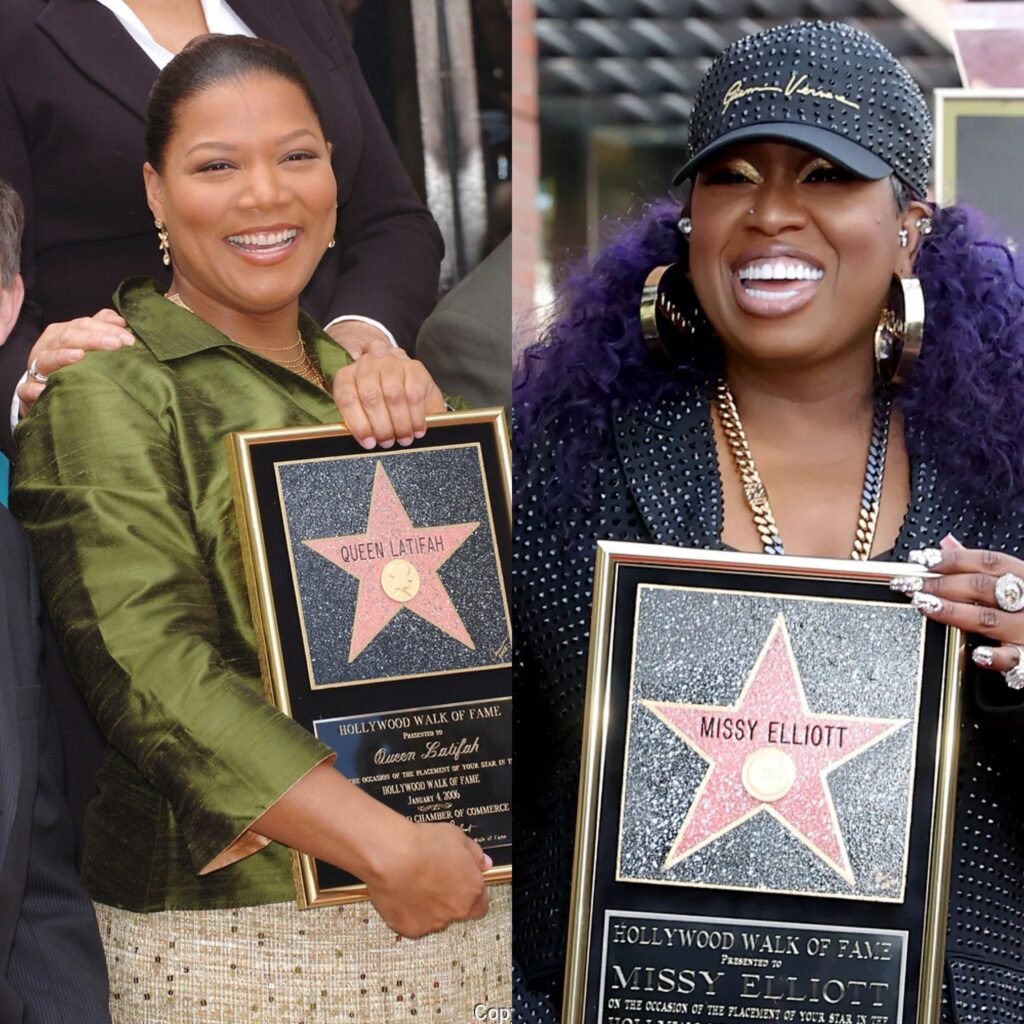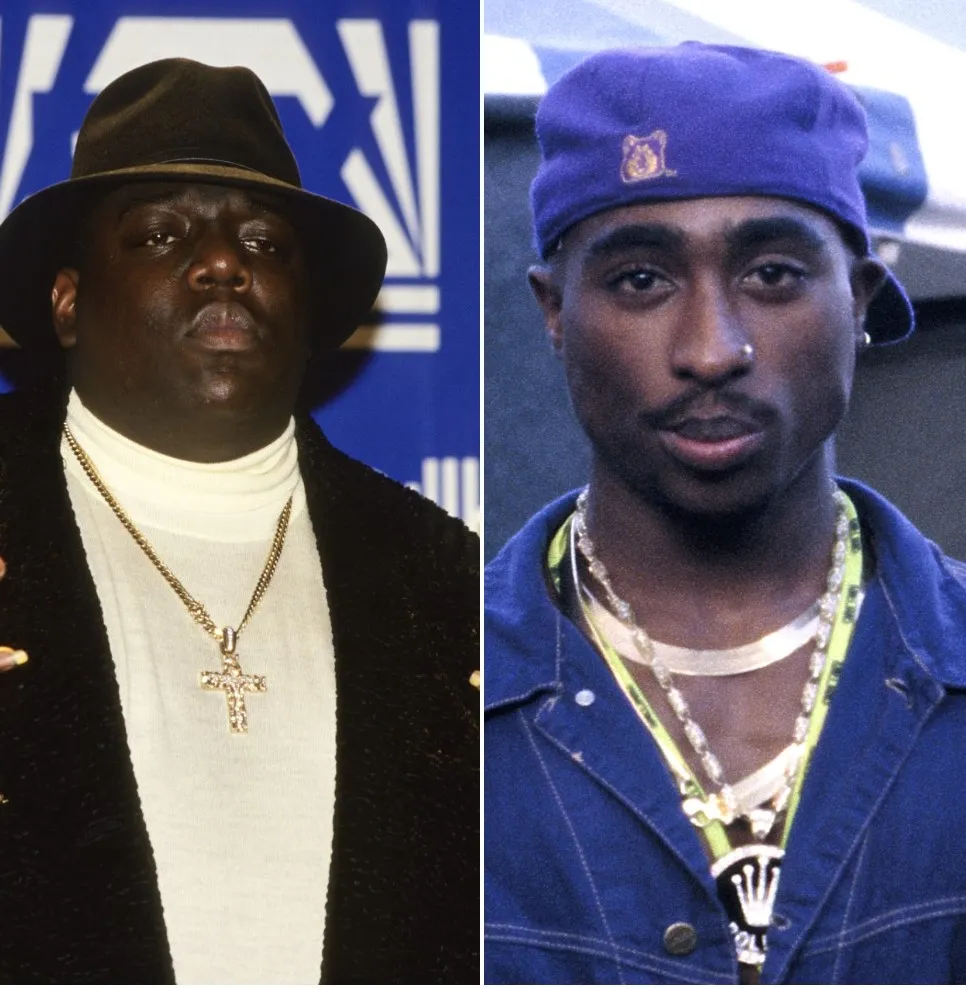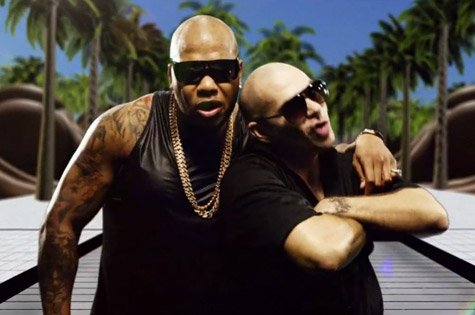Rap Music Premier Timeline and the Top 60 Rap Artists
Rap music, born from the vibrant neighborhoods of the Bronx, New York City, emerged as a powerful cultural force in the late 1970s. Its roots can be traced back to block parties and underground clubs where DJs like Kool Herc, Grandmaster Flash, and Afrika Bambaataa pioneered the use of turntables and breakbeats, laying the foundation for what we now know as hip-hop.
As hip-hop continued to evolve, it became more than just music; it became a voice for marginalized communities, a reflection of urban life, and a vehicle for self-expression. Here, we’ll delve deeper into the evolution of rap music and the incredible journey of the top 50 artists who have shaped this genre

The Birth of Rap (1970s-1980s)
In the boroughs of New York City, the first seeds of rap were sown. DJs and MCs, with their poetic verses and beats, began to captivate audiences at local parties.
Grandmaster Flash and the Furious Five brought turntablism to the forefront, while the Sugar Hill Gang’s “Rapper’s Delight” introduced rap to the mainstream. Moreover, the infectious rhythms of Kool Moe Dee, Kurtis Blow, and the groundbreaking Run-D.M.C. made it clear that rap was here to stay.
The Golden Age of Rap (1980s-1990s)
The ’80s and ’90s witnessed rap’s golden age, marked by innovation and lyrical prowess. Eric B. & Rakim set the stage for intricate wordplay, while EPMD and N.W.A pushed the boundaries of storytelling and social commentary. Ice Cube’s powerful lyricism, Wu-Tang Clan’s innovative sound, and the soulful beats of J Dilla resonated deeply with audiences, despite the controversial response to the music.

Meanwhile, Big L, Big Pun, and Mobb Deep brought gritty realism to their verses, and Jeru the Damaja and Guru elevated conscious rap. The West Coast-East Coast rivalry came to a head with Tupac Shakur and The Notorious B.I.G., two iconic figures who left an indelible mark on the genre.
The Legends (1990s-2000s)
MC Lyte broke barriers for female artists, while 21 Savage and Lil’ Kim continued to push the envelope. Cardi B and Tyler, The Creator emerged as genre-defying forces. The unapologetic Just-Ice, the wise KRS-One, and the influential MC Shan contributed to the diversity of styles in rap.
Modern Icons (2000s-Present)
Nipsey Hussle’s entrepreneurial spirit and impactful lyrics have left an enduring legacy, while Eve, Jay-Z, and 50 Cent have become rap moguls. Drake’s chart-topping versatility and Kendrick Lamar’s socially conscious storytelling have propelled them to the forefront.
Missy Elliott’s innovation, Lil Wayne’s prolificacy, and Snoop Dogg’s enduring influence continue to shape rap’s landscape. Eminem’s lyrical genius, Ghostface Killah’s vivid storytelling, and J. Cole’s introspective narratives resonate with audiences worldwide.

Black Thought, Jadakiss, Busta Rhymes, Bun B, and T.I. showcase the richness of rap’s lyrical craftsmanship. The legendary Big Daddy Kane, the politically charged Public Enemy, and the multi-talented Queen Latifah further expand the genre’s boundaries.
From the pioneering days of Grandmaster Flash to the genre-blurring artistry of Kendrick Lamar, rap music’s evolution has been nothing short of remarkable. It’s a genre that has transcended barriers, inspired countless artists, and empowered marginalized voices. As we journey through the timeline of rap, it becomes clear that it’s not just a genre of music; it’s a cultural force that continues to shape the world.
The impact of hip-hop on the music industry is nothing short of revolutionary.
It has transcended boundaries and reshaped the industry in several ways:

1. Cultural Influence: Hip-hop has had a profound impact on global culture. It’s not just a genre of music but a lifestyle and art form that influences fashion, language, dance, and visual arts. Elements of hip-hop culture can be seen in everything from streetwear fashion to the way people speak and express themselves.
2. Diversity and Inclusivity: Hip-hop opened doors for a more diverse range of voices in music. It provided a platform for artists of different racial, ethnic, and socioeconomic backgrounds to share their stories and perspectives. This inclusivity has challenged and changed the predominantly white and male landscape of the music industry.
3. Innovation in Production: Hip-hop introduced innovative production techniques, including sampling and beat-making, which have had a lasting impact on music production across various genres. Producers like J Dilla and Dr. Dre revolutionized how music is created, influencing producers in pop, R&B, and electronic music.
4. Globalization of Music: Hip-hop has transcended cultural and linguistic barriers, becoming a global phenomenon. Artists from around the world now incorporate hip-hop elements into their music, creating unique fusions of sounds and styles. This globalization has expanded the reach of the music industry.
5. Social and Political Commentary: Hip-hop has been a powerful platform for social and political commentary. Artists like Tupac Shakur and Public Enemy used their music to address issues like racism, inequality, and systemic injustice, sparking important conversations and activism.

6. Commercial Success: Hip-hop has consistently dominated the charts and album sales, proving its commercial viability. Artists like Jay-Z, Eminem, and Drake have achieved massive success, further solidifying hip-hop’s influence in the mainstream music industry.
7. Evolution of Music Videos: Hip-hop played a pivotal role in transforming music videos into cinematic experiences. Artists like Missy Elliott and Hype Williams created visually stunning and innovative music videos that set new standards for the industry.
8. Entrepreneurship: Hip-hop artists have expanded their influence beyond music into various business ventures. Jay-Z, for example, has become a successful entrepreneur with investments in tech, fashion, and sports.
9. Sampling and Reinterpretation: Hip-hop’s use of samples has led to the rediscovery and reinterpretation of older music, introducing new generations to classic songs and artists. This has boosted the popularity of vintage music and created opportunities for older musicians.
10. Influence on Other Genres: Hip-hop has permeated other genres of music, resulting in collaborations and genre-blending. Artists from pop, rock, and electronic music often incorporate rap elements and work with hip-hop artists.

The Birth of Rap (1970s-1980s)
- Grandmaster Flash and the Furious Five (1970s): Pioneers of hip-hop and rap, they laid the foundation for the genre.
- Sugar Hill Gang (1979): Known for the iconic track “Rapper’s Delight,” they introduced rap to the mainstream.
- Kool Moe Dee (1980s): Known for his battle-rapping skills, he was a significant figure in the early days.
- Kurtis Blow (1980s): His hit “The Breaks” is considered a rap classic.
- Run-D.M.C. (1980s): Revolutionary in merging rap and rock, they broke new ground.
- Whodini (1980s): Known for hits like “Friends” and “Freaks Come Out at Night.”

The Golden Age of Rap (1980s-1990s)
- Eric B. & Rakim (1980s): Known for their intricate lyrics and smooth beats.
- EPMD (1980s): Their album “Strictly Business” is a classic in East Coast rap.
- N.W.A (1980s): Controversial and influential, they brought gangsta rap to the forefront.
- Ice Cube (1980s): A founding member of N.W.A, he had a successful solo career.
- Wu-Tang Clan (1990s): Known for their unique style and the album “Enter the Wu-Tang (36 Chambers).”
- J Dilla (1990s): A legendary producer and rapper who left a lasting impact.
- Big L (1990s): Known for his lyrical prowess and underground influence.
- Big Pun (1990s): His album “Capital Punishment” is a classic in Latin hip-hop.
- Mobb Deep (1990s): Their album “The Infamous” is a seminal work in hardcore rap.
- Jeru the Damaja (1990s): Known for his conscious lyrics and collaborations with Gang Starr.
- Guru (1990s): Part of the duo Gang Starr, he’s considered one of the greatest MCs.
The Legends (1990s-2000s)
- Tupac Shakur (1990s): An icon in hip-hop, known for his socially conscious lyrics.
- The Notorious B.I.G. (1990s): A lyrical genius, his album “Ready to Die” is a classic.
- MC Lyte (1990s): A pioneering female rapper, she paved the way for future artists.
- 21 Savage (2010s): Known for his gritty storytelling and trap style.
- Lil’ Kim (1990s): An influential female rapper, known for her bold style.
- Cardi B (2010s): Burst onto the scene with “Bodak Yellow” and became a superstar.
- Tyler, The Creator (2010s): Known for his unique sound and style.
- Just-Ice (1980s): An early contributor to the genre, known for “Cold Gettin’ Dumb.”

The Teachers and Visionaries (1980s-2000s)
- KRS-One (1980s): Known for his socially conscious lyrics and teachings.
- MC Shan (1980s): Part of the legendary Bridge Wars with KRS-One.
- Roxanne Shante (1980s): An early female rapper, known for “Roxanne’s Revenge.”
- MC Hammer (1990s): Achieved massive commercial success with “U Can’t Touch This.”
- Method Man (1990s): A member of Wu-Tang Clan and a successful solo artist.
Modern Icons (2000s-Present)
- Nipsey Hussle (2000s): A visionary artist and entrepreneur who left a lasting legacy.
- Eve (2000s): Known for her hits like “Let Me Blow Ya Mind” with Gwen Stefani.
- Jay-Z (2000s): A rap mogul known for his business acumen and lyrical prowess.
- 50 Cent (2000s): Achieved fame with “Get Rich or Die Tryin'” and later business success.
- Drake (2010s): A chart-topping artist known for his versatility.
- Kendrick Lamar (2010s): Known for his socially conscious lyrics and critically acclaimed albums.
- Missy Elliott (1990s): An innovator in rap and production, known for her creative music videos.
- Lil Wayne (2000s): A prolific artist with a vast discography.
- Snoop Dogg (1990s): An enduring figure in West Coast rap.
- Eminem (1990s): Renowned for his lyrical skills and storytelling.
The Storytellers and Wordsmiths (1990s-Present)
- Ghostface Killah (1990s): A member of Wu-Tang Clan, known for his vivid storytelling.
- J. Cole (2010s): Known for introspective lyrics and social commentary.
- Black Thought (1990s): The lead rapper of The Roots, known for his lyrical prowess.
- Jadakiss (1990s): A member of The LOX and known for his distinctive voice.
- Busta Rhymes (1990s): Known for his rapid-fire delivery and dynamic performances.
- Bun B (1990s): A key figure in Southern rap, part of UGK.
- T.I. (2000s): Known for hits like “Bring Em Out” and “Live Your Life.”
- Big Daddy Kane (1980s): Known for his smooth delivery and classic tracks.
- Public Enemy (1980s): Known for their politically charged lyrics and iconic album “It Takes a Nation of Millions to Hold Us Back.”
- Queen Latifah (1990s): A multi-talented artist, known for her pioneering role in hip-hop.

These are just some of the artists who have shaped the rap genre over the years.
The list is by no means exhaustive, as rap continues to evolve with new talent emerging regularly.
Each of these artists has made a unique contribution to the world of hip-hop, and their influence can still be felt today.
- LL Cool J (1980s): Known for hits like “Mama Said Knock You Out” and “I Need Love.”
- Common (1990s): Renowned for his conscious lyrics and poetic style.
- Andre 3000 (1990s): Part of the hip-hop duo OutKast, known for his unique flow.
- Eazy-E (1980s): A founding member of N.W.A and a key figure in gangsta rap.
- Nas (1990s): Known for his intricate storytelling and classic album “Illmatic.”
- DMX (1990s): A powerful and emotionally charged rapper, known for hits like “Ruff Ryders’ Anthem.”
- Salt-N-Pepa (1980s): Pioneering female rap group known for tracks like “Push It.”
- EPMD (1980s): Mentioned earlier, but their impact on rap deserves reiteration.
- Uncle Luke (1980s): A key figure in Miami bass and the founder of 2 Live Crew.
- Wu-Tang Clan (1990s): Also mentioned earlier, but their collective talent is undeniable.

These artists have all contributed significantly to the rap genre and have left their mark on the culture of hip-hop. Including them in the list adds depth and diversity to the representation of rap’s history and evolution.
we can’t mention hip hop and not include these rappers
Trick Daddy: A Florida Rap Icon
Trick Daddy, the “Mayor of Miami,” stands as one of the most influential rap icons to emerge from the vibrant Florida music scene. Hailing from Miami’s Liberty City, Trick Daddy brought the raw essence of the streets into his music, creating an authentic voice that resonated with fans not only in Florida but across the nation. With hits like “I’m a Thug” and “Let’s Go,” he showcased the grit and determination of Miami’s urban life, cementing his place in the annals of rap history.
Rick Ross: Florida’s Hip-Hop Titan
Born William Leonard Roberts II, Rick Ross, the self-proclaimed “Boss,” is a formidable force in Florida rap. Hailing from Carol City, Ross’s larger-than-life persona and distinctive flow have made him a heavyweight in the game. He’s known for his chart-topping hits, signature Maybach Music Group, and his unwavering portrayal of the opulent Miami lifestyle. Rick Ross’s impact on the Florida rap scene is undeniable, as he continues to influence and inspire a new generation of artists.
Outkast and André 3000: Southern Hip-Hop Pioneers
Outkast, consisting of André 3000 and Big Boi, broke the mold of traditional hip-hop and brought the Southern sound to the forefront. André 3000’s eclectic style and lyrical prowess, combined with Big Boi’s Southern-fried beats, gave birth to a unique brand of hip-hop that put Atlanta, Georgia, on the map. Outkast’s groundbreaking albums like “Aquemini” and “Speakerboxxx/The Love Below” have solidified their place as true pioneers in the rap world.

Crunk: The Southern Sound
Crunk music, with its infectious energy and bass-heavy beats, burst onto the scene in the late ’90s and early 2000s, largely thanks to artists like Lil Jon and the East Side Boyz. Originating in the South, particularly Atlanta, crunk music was the soundtrack to wild parties and energetic club scenes. It left an indelible mark on the rap landscape and continues to be a genre that brings the party to life.
Master P: No Limit’s Reign
Master P, the founder of No Limit Records, is a trailblazing figure in Southern hip-hop. His label’s dominance in the ’90s with acts like Mystikal, Silkk the Shocker, and C-Murder made No Limit a household name in rap. Master P’s entrepreneurial spirit and relentless hustle solidified his status as a Southern rap mogul.

Trina, Pitbull, and Flo Rida: Florida’s Hip-Hop Diversity
Trina, “The Baddest Chick,” Pitbull, “Mr. Worldwide,” and Flo Rida, known for his infectious pop-rap hits, showcase the diversity of Florida’s hip-hop scene. Trina’s unapologetic and empowering lyricism, Pitbull’s global appeal, and Flo Rida’s catchy hooks have all contributed to the rich tapestry of Florida’s musical heritage.

Khia and Lil Uzi Vert: Emerging Voices
Khia, with her controversial and provocative lyrics, and Lil Uzi Vert, with his unique blend of emo rap and trap, represent the ever-evolving landscape of hip-hop. They continue to push boundaries and challenge conventions in the genre.
Together, these artists have shaped Florida’s rap legacy, demonstrating the state’s vibrant and diverse contributions to the world of hip-hop. Their influence extends far beyond the Sunshine State, leaving an indelible mark on the global rap scene.
Ludacris, whose real name is Christopher Bridges, is a rapper, actor, and entrepreneur known for his witty and clever lyrics. He rose to fame in the early 2000s with hit songs like “Southern Hospitality” and “Stand Up.” Ludacris has not only made his mark in the music industry but has also ventured into acting, appearing in various films and TV shows.

The D.O.C., whose real name is Tracy Lynn Curry, is a respected rapper and songwriter. He gained recognition in the late ’80s and early ’90s and is best known for his debut album, “No One Can Do It Better.” This album is considered a classic in West Coast hip-hop and showcased The D.O.C.’s lyrical prowess.

Both Ludacris and The D.O.C. have left their indelible marks on the hip-hop landscape, contributing to the genre’s growth and evolution. Their unique styles and contributions to rap music have earned them a lasting place in the history of hip-hop and cannot be left out of the conversation!
Certainly, here are more rappers who have passed away, along with their names added to the tribute:
🕊️ Remembering the Legends: Rest in Peace 🕊️
Today, we pay our respects to the incredible rappers who left an indelible mark on the world of hip-hop. Their talent, creativity, and unique voices will continue to inspire generations to come. 🎤
In loving memory of:
- Tupac Shakur
- The Notorious B.I.G.
- Nipsey Hussle
- Big L
- Big Pun
- Mac Miller
- DMX
- Prodigy
- Ol’ Dirty Bastard
- Guru
- Nate Dogg
- Phife Dawg
- Heavy D
- Eazy-E
- Lisa “Left Eye” Lopes
- Jam Master Jay
- XXXTentacion
- Juice WRLD
- Pop Smoke
- MF DOOM
- Shawty Lo
- Mac Dre
- Bushwick Bill
- Proof
- J Dilla
- Pimp C
- Dolla
- Bankroll Fresh
- Lil Peep
- Speaker Knockerz
- Fred the Godson
- Soulja Slim
- Lord Infamous
- Camu Tao
- Capital Steez
- Ol’ Dirty Bastard
May their music and legacies live on forever. 🙏🎶
#RestInPeace #LegendsNeverDie #HipHopHeroes
Who is your top 50 plus 10 list?

[…] represent the voiceless artists, acknowledging those who were left behind, from Craig Mack to G. Dep. I still remember those kids […]
[…] impact has been profound – the revered rapper, once held in high esteem, now faces a credibility […]